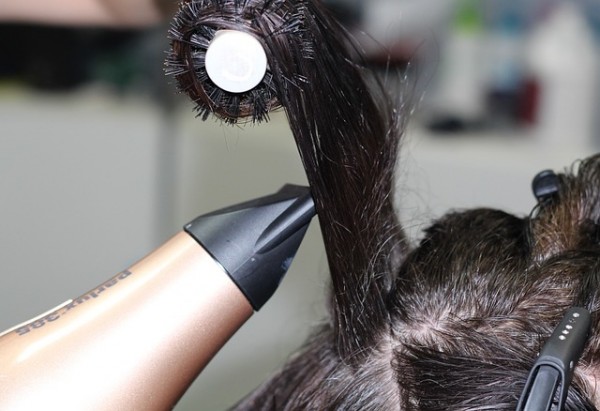5 Ways to Sleep Safely with Wet Hair

Hair experts advise to always spend a few minutes and try to allow your hair to dry before you go to sleep at night whether it’s air dry, or through the use of a blow dryer.
If you've been showering before bed, you're probably starting to worry if sleeping with wet hair would bring problems to your health later on.
Somebody may have told you that you'd be sick by sleeping with damp hair. Or, your best friend may have already warned you about damaging your hair or even your skin by doing so.
By this time, you may be so worried already and would want to know the truth. According to Vanderbilt University Medical Center's Division of Infectious Disease medicine professor, Dr. William Schaffner, the idea may seem suitable into "the old bit of folklore that getting yourself wet" can make you "come down with a cold."
More so, Schaffner added, while the notion continues, it was "disproved long ago." It may be true that you are much more likely to catch a common cold during the winter season.
However, the doctor explained that this has to do with the ways respiratory infections multiply and spread, but one cannot catch a cold "from being cold."
ALSO READ: 4 Best Beverages You Can Drink If You Have Diabetes
5 Must-Do When Sleeping with Damp Hair
Healthwise, as Schaffner said, sleeping with damp hair won't harm your health. However, if you want to achieve perfectly beautiful and healthy hair, you must know some truths about sleeping with wet hair.
Experts say the main reason why as much as possible, you should not sleep without drying your hair is that the hair's structure weakens when it's wet since "cuticles naturally lift" when wet, making the hair elastic, weak, and prone to damage.
Whether you want to believe what the people, experts or not, about sleeping without drying your hair, here are 5 easy tips to get rid of any hair damage.
1. Limit the Amount of Getting Your Hair Wet
One of the simplest ways to limit the frequency you are sleeping on damp hair is by wetting it less. The amount of shampoo you apply on your hair is already your personal choice, maybe, according to your scalp, type of hair, and lifestyle.
But if you have curly hair, experts suggest that you should limit the amount of getting your hair wet. Specifically, curly or textured hair is found to be more fragile as it is more likely to dry easily.
Ideally, this kind of hair needs to be washed less frequently. Hair experts say, up to twice a week of the wash is perfect to go with moisturizing conditioners.
DON'T MISS THIS: Why Stress Makes One Overeat or Not Eat at All, and How to Overcome It
2. Allot Intervals Between Your Rinse and Sleep Time
If you allot time between your rinse and sleep time, you are giving your hair more time to air dry, and thus, even if your hair strands are not ideally moisture-free, they are a lot better than drenched wet.
Hair experts advise too, to always spend a few minutes and try to allow your hair to dry before you go to sleep at night, whether it's air dry or through the use of a blow dryer.
When using a hairdryer, be sure to set it to low so you can get out some of the moisture. And when drying your hair through air dry, use a "microfiber towel" for the excess water to blot.
3. Use a Silk Pillow, Cap or Scarf when You Sleep
Using silk sleeping accessories are not only providing the user with a luxurious look. They can keep the hair strands strong, smooth, and dehydrated, too.
When you use a satin or silk pillowcase, put on a cap or headscarf, you are allowing your hair to slide as you move in your bed while you sleep. In addition, these smooth materials will help you retain the natural oils of your hair.
4. Apply Coconut Oil After Shower
There is scientific evidence that coconut oil shields wet hair from being damaged. Essentially, your hair cuticle is composed of flaps like "shingles on the roof."
Your hair immerses water when it's wet. It swells too, when wet, leading to the said flaps to stand up, making the hair
Apply coconut oil to your hair exposed to breakage. The oil from the coconut oil lessens the amount of water absorbed. Thus it becomes less susceptible to damage.
Experts note that if you have a certain skin condition known as "seborrheic eczema," you should not use coconut oil as it can worsen your condition.
5. Dry Your Hair and Do Some Detangling Often
If you can do the quick-blow dry, or shower earlier to allow extra time for air-drying, don't hesitate and do so.
As earlier mentioned, the less water your hair gets before bed, the better so you can minimize damage. Ensure gentle detangling of your hair, too, before going to sleep so you can get rid of any added stress your hair may cause.
IN CASE YOU MISSED THIS: 6 Reasons Why You're Gaining Weight Unintentionally
Check out more news and information on Healthy Hair on MD News Daily.
Sep 02, 2020 09:40 AM EDT





